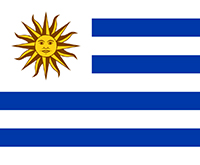ARVE Error: Mode: lazyload not available (ARVE Pro not active?), switching to normal mode
Language shifts over time and context in this exploration of dryness and heat.
By Bartosz Panek for Constellations (2020)
During the drought the road is dry features the voices of Jan Gola (Poręby village), Magda Maksimiuk (film critic), Paulina Mirowska and Ola Czerniawska (activists from Earth Strike), Anna Andrzejewska (hydrologist, Kampinoski National Park), Wiktor Kotowski (wetland ecologist, University of Warsaw), Ewa Rudnicka (linguist, University of Warsaw).
“Susza wywarła wielkie spustoszenie” (the drought has exerted havoc)— this sentence is one of the best known in Polish cinematography. In the movie Rejs by Marek Piwowski, where it appears, it means almost nothing but creating a kind of surrealistic situation.
But “The drought has wreaked havoc” is real now. I explored the language we use and used to describe lack of water/dryness/heat. It’s a new situation many of us face for the first time in our lives. The language didn’t change at all, but some old words put in a new context begin to resonate.
BARTOSZ PANEK is a radio feature documentary maker and reporter with almost 20 years experience. He is the winner of Polish and international awards, including the Prix Italia for best radio documentary. His work has been highlighted in competitions in Italy, France and Croatia.
A stipend holder from the Polish Ministry of Culture and National Heritage, his first book— on the Polish Tatars— was published in the summer of 2020.
CONSTELLATIONS is a sound art and experimental narrative collective that illuminates international artists making sound works that convey meaning through evocation and abstraction. They curate and produce a podcast, live events and publish sound materials.
ARVE Error: Mode: lazyload not available (ARVE Pro not active?), switching to normal mode
Sighs and desires.
By Laura Canabrava (2020)
‘What is your greatest desire? It’s a question I asked the women who were present on the day of the recording. Along with their answers, I recorded their breath. Our willpower and our desires are what make us breathe, what moves us, what keeps us alive.’
‘Will’ was created as part of the ‘Audio Storytelling’ workshop in the ASA program run by Oi Futuro and British Council Brazil in 2020.
Laura Canabrava is a Brazilian singer, songwriter, actress, dancer and multi-disciplinary artist from Rio de Janeiro. She graduated in music from UNIRIO and the dance faculty from Angel Vianna. As a singer and composer, she combines different artistic languages in her performance. On digital platforms, you can find your first album AIYE, the recently released EP WILL and other singles, all mixing sounds with Brazilian rhythms, added to jazz, pop or electronic.
ARVE Error: Mode: lazyload not available (ARVE Pro not active?), switching to normal mode
A dreamlike tumble into insomnia
By Suvi Tuuli Kataja for Nordic Shortdox (2019)
The radio documentary “When you’re sleeping, I’m awake” (Kun nukut, minä valvon) explores the darkness and temporary insanity of sleepless nights.
The documentary is the winner of the 2019 Finnish Shortdox competition and Nordic Shortdox competition. The piece won the jury as well as the audience award.
Nordic Shortdox is an annual competition in which the winners of Shortdox competitions in the different Nordic countries compete against each other in producing the best, short radio documentary. In 2019, the Faroe Islands, Norway, Sweden, Finland and Denmark participated.
Suvi Tuuli Kataja is a Finnish director. She is working with new and experimental audio storytelling.
ARVE Error: Mode: lazyload not available (ARVE Pro not active?), switching to normal mode
A daughter writes an audio letter to her father as she unfurls a story of his life.
By Amelia Umuhire for Deutschlandfunk Kultur (2018)
“There’s a picture from a time when you are wearing a short-sleeved striped shirt and with a plastic cup in your hand are toasting with a friend. You’re smiling and have the same gap in your teeth on your left as I have now. I checked all your photos for our similarities and collected them together. For a long time you existed only in pictures, until Marc sent me this recording…”
Amelia Umuhire tells the story of Innocent Seminega – her father – as a young student, teacher, husband and parent up until his death at the hands of the Hutu extremists in Rwanda. Tracing her family history as she addresses him, she weaves together threads from his love of linguistics, his romance with her mother, parenthood, and life lived amidst violent conflict – until unfurling her own story of her childhood and movement between countries – critiquing the white gaze which might try and frame her family’s story.
“They called these violent outbreaks, when the President was overthrown by his cousin, Juvénal Habyarimana, the ‘winds’. That’s how the Rwandan language is sometimes. Pogroms become winds, humans become cockroaches. Man-made violence becomes a force of nature and, like a bad harvest or other natural disasters, it comes and goes.”
Amelia Umuhire is a Rwandese filmmaker and artist based in Berlin. She wrote, directed and produced the award-winning web series ‘Polyglot’,which won Best German Webseries at the Webfest Berlin in 2015, the award-winning short experimental film ‘Mugabo’ and the Prix Europa nominated sound piece ‘Vaterland’ (Fatherland). Her work has been screened at the MOCA LA, MCA Chicago, Victoria and Albert Museum, 10th Berlin Biennale, the Smithsonian National Museum of African American History and many more. She is a current laureate of the Villa Romana Prize in Florence, Italy and completing her first feature film.
ARVE Error: Mode: lazyload not available (ARVE Pro not active?), switching to normal mode
Visit a Tehran that blossoms in language, fable and collective imagination.
By Arif Mirbaghi for Constellations (2020)
Pointing At Canopus was composed by Arif Mirbaghi and edited by Michelle Macklem and Jess Shane. It was made with the voices of over a dozen friends. Special thanks to Michael Eckert for his pedal steel improvisation and Parva Karkhaneh for her patient guidance.
The tortoise, you know, carries his house on his back. No matter how hard he tries, he cannot leave home. – The Anvār-i Suhaylī or Lights of Canopus
Arif writes:
Pointing At Canopus is a meditation on the nature of home, not in the brick-and-mortar sense, but the broader idea: a place of rest. Children of immigrants often separately compartmentalize these ideas. Home is a place we live but heritage is a space we occupy. There is a daily pivot between the cadences of interaction with our family and those of our friends or co-workers. Inevitably the lines blur, and as individuals we find ourselves on different points along a gradient.
Coming to Iran reversed this pivot for me. The language of my home life suddenly spilled out in the streets, flooded my conversations, my day to day. For the first time I was utilizing Farsi beyond the comfort of my family home— I became a Farsi speaker.
At the same time, English became a place of thoughtful saudade. I would be lulled to sleep by audiobooks. The meter and ornamentation of the language felt familiar but distant like a kind of reverb— I became an English listener.
Pointing At Canopus explores the waxing and waning of home and heritage. I hope to evoke in listeners a sense of transit. A feeling neither here nor there. The idea that home is the pivot, not the point. Sounds of moving vehicles. Extra-lingual umms & ahhs while a speaker connects sentences. ‘Here’ is a space, but ‘there’ is a mythology, a fable. We orbit our fables like atoms around a nucleus. Wherever we go, there we are again.
ARIF MIRBAGHI is a Canadian-born composer & arranger based in Tehran. He has performed with dozens of ensembles throughout the world, in styles varying from folk, jazz, progressive rock, and beyond. His work explores the relationship of disconnection and reconnection for communities in the diaspora. More from Arif on his Soundcloud and on Spotify.
ARVE Error: Mode: lazyload not available (ARVE Pro not active?), switching to normal mode
A woman tells the story of her own birth.
By Mrs Kaika Burton and Caddie Brain (2019)
Mrs Kaika Burton was born deep in the desert of Central Australia. Her mother travelled hundreds of miles barefoot before giving birth alone at a massive desert mesa called Atila – a place which became her spiritual country.
Mrs Kaika Burton was a respected and revered senior artist, educator, storyteller and cultural leader. She was also one of the few remaining poetic speakers of Pitjantjatjara, a traditional Indigenous language of Central Australia’s remote Anangu Pitjantjatjara Yankunytjatjara (APY) Lands. There were once more than 400 traditional languages spoken across the Australian continent, but only around 13 are still spoken by children – all threatened by policies restricting Aboriginal people from speaking their languages and the ongoing forces of colonisation.
At the age of 70, she decided to share this deeply personal story of her birth, revealing, for the first time, the traditional birthing methods that helped define her cultural life. Telling this story was part of her continuous work to protect her ancient culture, and to ensure that future generations can speak the language it lives in.
Mrs Kaika Burton passed away in 2023. While use of her full name has been restricted since this feature first appeared on Radio Atlas, she made this piece in order to share her story and language, to ensure her voice can still be heard. It continues to be, with the support of her family.
The soundscape is binaural, specifically recorded on the country of Mrs Kaika Burton’s birth, in one of the most remote parts of Australia. Therefore the piece is best experienced through headphones.
Produced by Mrs Kaika Burton
Sound, editing and co-production by Caddie Brain
Translation: Linda Rive
Producing organisation: Tjala Arts
Supported by the Australia Council for the Arts and Ara Irititja. With thanks also to Third Coast International Audio Festival where it was presented in 2019.
ARVE Error: Mode: lazyload not available (ARVE Pro not active?), switching to normal mode
A night watchman walks alone through an Anatomic Institute.
By Stephen Schwartz for DR (1971)
A lonely walk in the dark, skeletons and floating body parts caught in the beam of a flashlight… in the ‘The Night Watchman’, Detroit-born Stephen Schwartz pioneers his landmark interview technique known as the ‘moments interview’ or the ‘full Schwartz’. You can learn more about it here.
Stephen Schwartz was awarded the Prix Italia for features in 1982 and 1992. He passed away in 2013.
Made in collaboration with DR – you can listen to The Night Watchman (Nattevægteren) and more montages on their archive website.
ARVE Error: Mode: lazyload not available (ARVE Pro not active?), switching to normal mode
A series about unspoken secrets.
By Zoha Zokaei (2019)
Price of Secrecy is a fictionalised podcast series that addresses some of the legal, social, cultural and familial constraints that contribute to the silence around the issue of child sexual abuse in Iran. At the heart of the series is the question – ‘why, as members of society, are we failing to listen to the victims of child sexual abuse?’. A question that takes the responsibility of breaking the silence away from the victim and introduces it as a social responsibility.
Zoha Zokaei is an Anglo-Iranian artist, academic and PhD researcher currently living and working in London. She holds an MFA from Goldsmiths College, University of London and is currently studying for a PhD at the University of Sussex where she was awarded a CHASE scholarship. Her research interests include the following areas: ethics of representation (particularly representing the pain of the other), decentring and problematizing voice, practice as research, storytelling for social change and tactical media.
Price of Secrecy was supported by CHASE (Consortium for the Humanities and the Arts South-East England). You can find further episodes and information at the project website:
price-of-secrecy.com
ARVE Error: Mode: lazyload not available (ARVE Pro not active?), switching to normal mode
A woman tries to meet someone.
By Lotta Erikson for Sveriges Radio (1996)
Recorded in the pre-internet dating days, Lotta Erikson searches for a partner through telephone contact agencies.
Lotta Erikson has been a freelance for the Swedish radio (SR) and Swedish national television (SVT) in various forms since 1992, making around 15 radio documentaries and several TV-documentaries. Her productions have been presented at festivals and have won awards. In recent years she has written scripts for both feature films and TV-series, including the TV series The Hunt for a Killer, for SVT-drama with director Mikael Marcimain. Lotta Erikson has also made several sound art installations, written stage plays, radio dramas and a book about the human voice “The Alphabet of the Voice”.
Translation by Klara Erikson
ARVE Error: Mode: lazyload not available (ARVE Pro not active?), switching to normal mode
A power struggle in the domestic space.
By Eva Lammelová for Czech Radio (2018)
According to numerous statistics, Czechs are a nation of dog-lovers. On average, there is a dog in every second household in the Czech Republic, resulting in the most hounds per capita in all of Europe.
In Eva’s house there’s Tonča. Tonča is Eva’s French Bulldog who lives with her and her husband in Prague’s Vinohrady district. She wants to sleep with them in their bedroom so badly that she stakes her claim by barking at their bedroom door and leaving little puddles of protest. Eva’s husband, however, is strongly against it. What do you when you have a dog at home with separation anxiety?
‘Man: A Dog’s Best Friend’ was a runner up for Best Documentary at the Prix Bohemia (2019)
Editor: Brit Jensen
Sound: Jiří Slavičínský
Director, screenwriter, and producer Eva Lammelová (1986) studied sociology and andragogy at Palacký University in Olomouc, as well as film and theater science. She filmed an episode of the series Nedej se! for Czech Television entitled Free Food For All (Ji.hlava IDFF 2015) and the documentary AsexuaLOVE (2018).


































